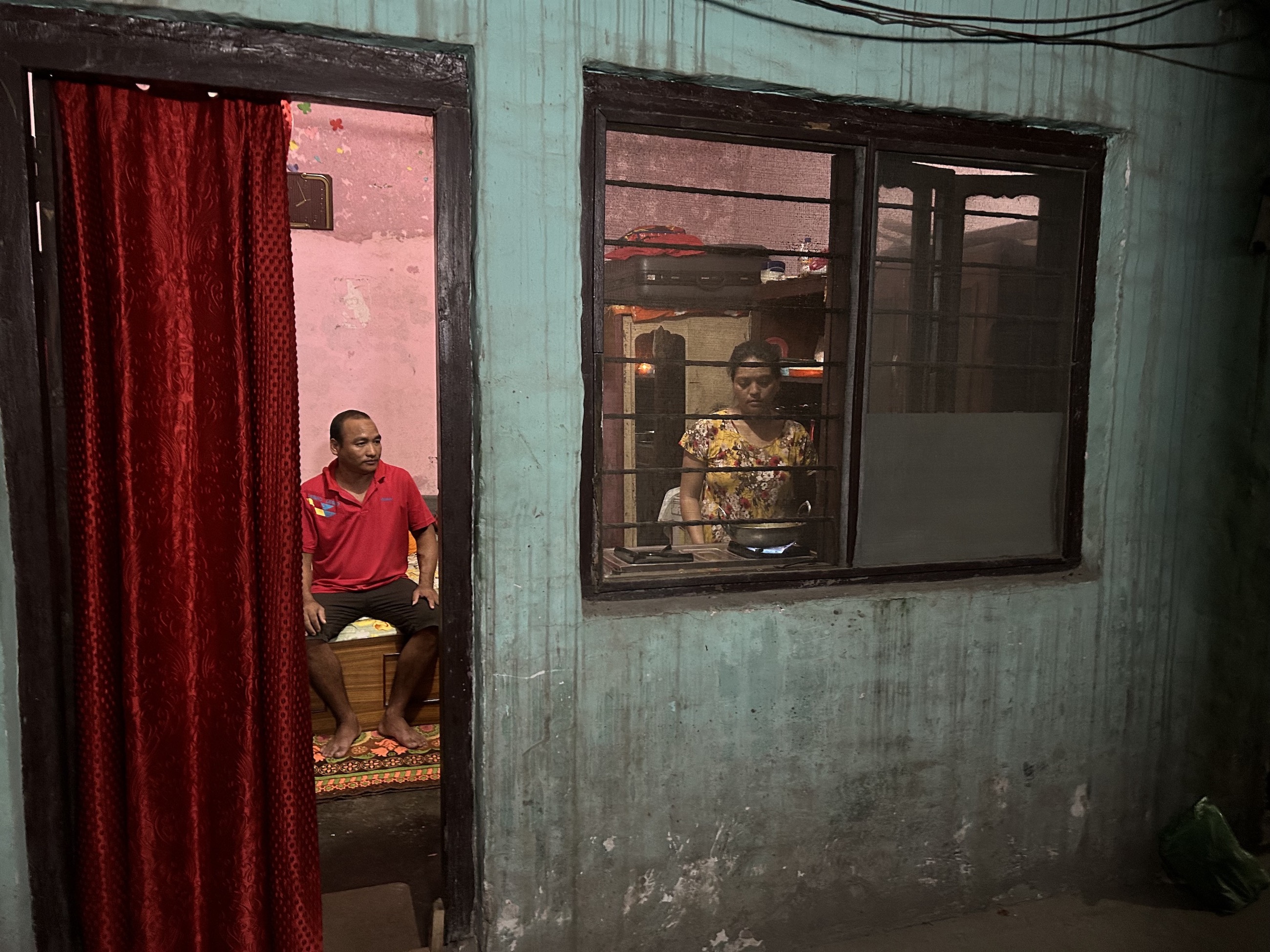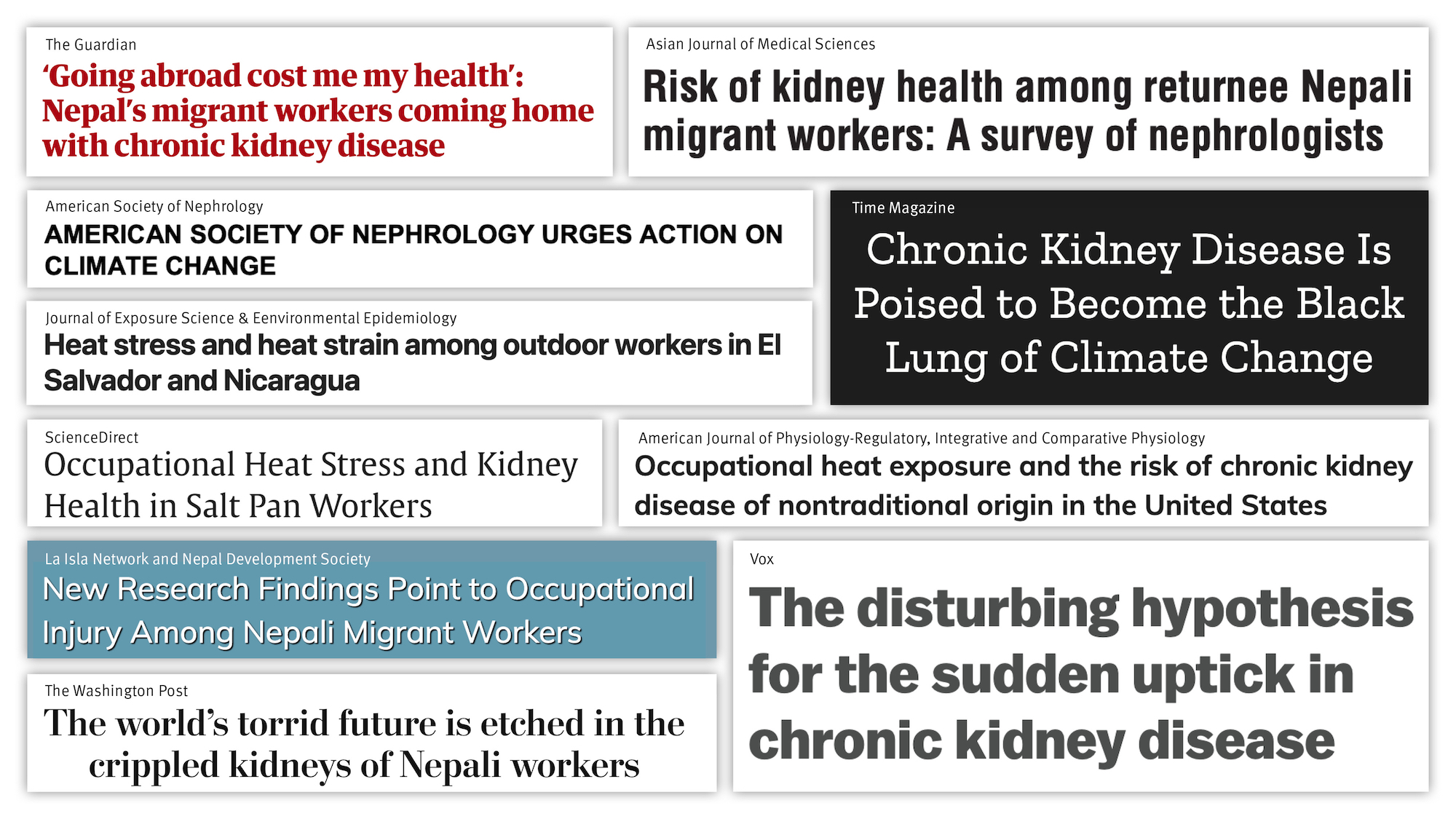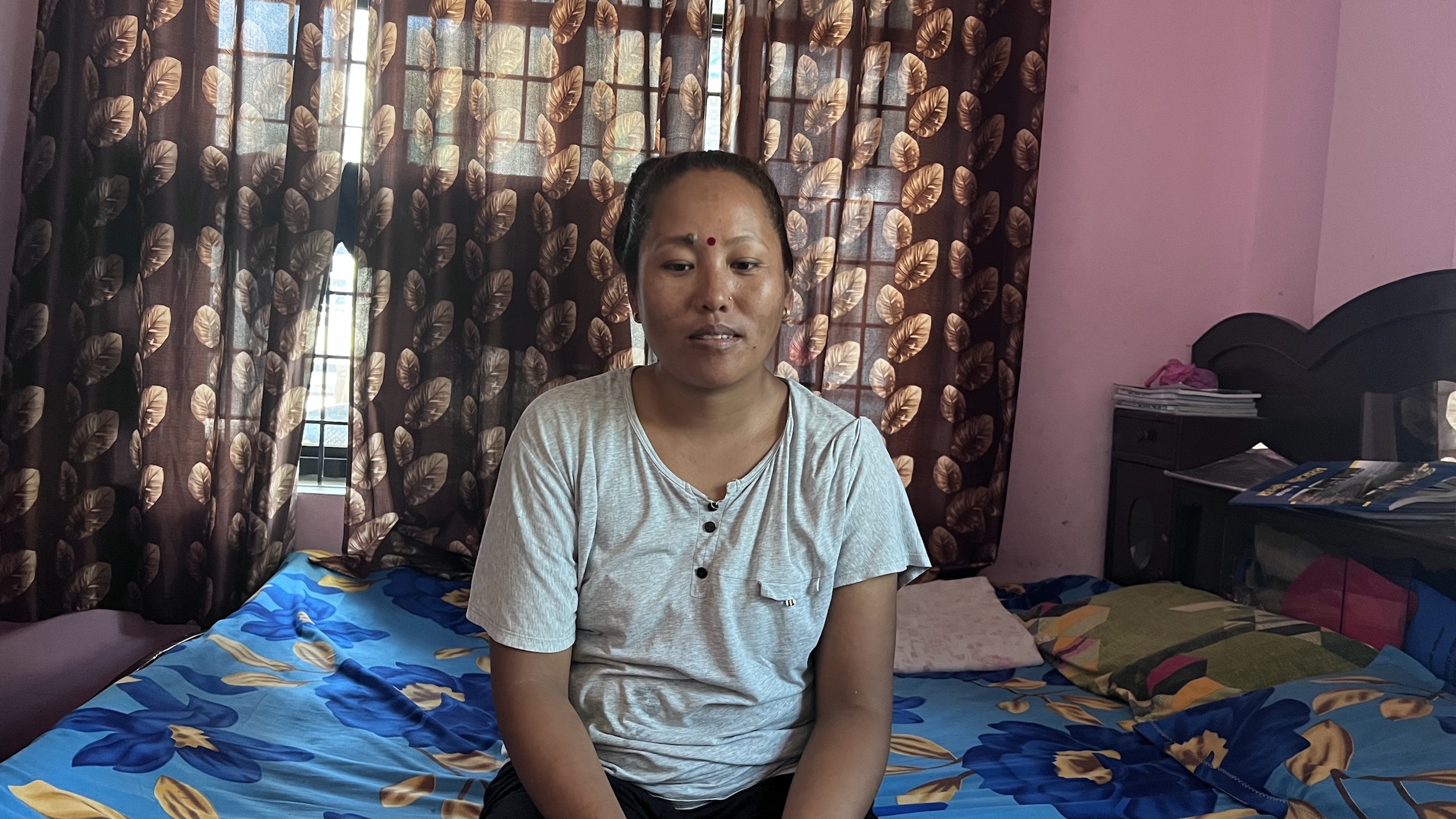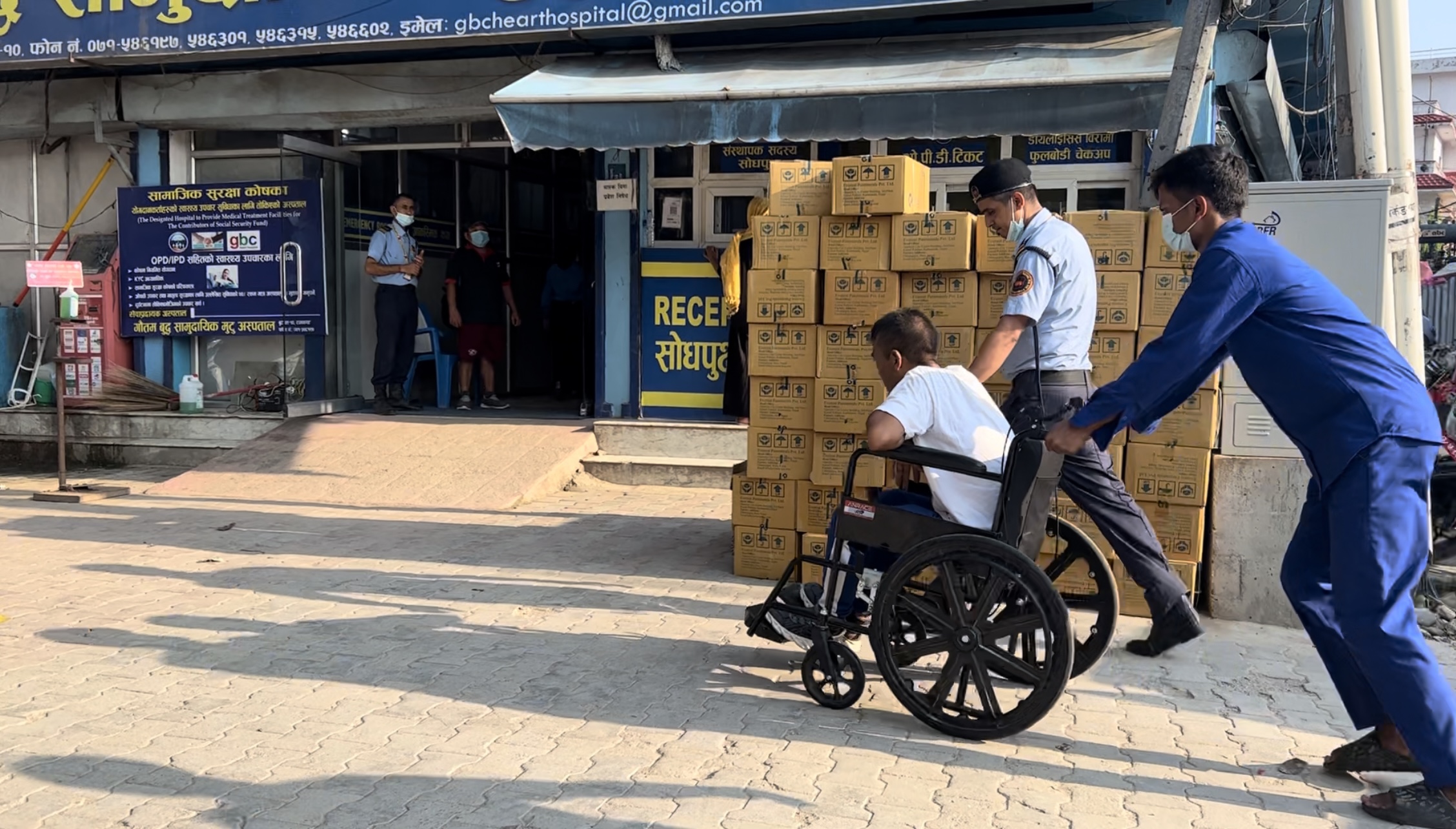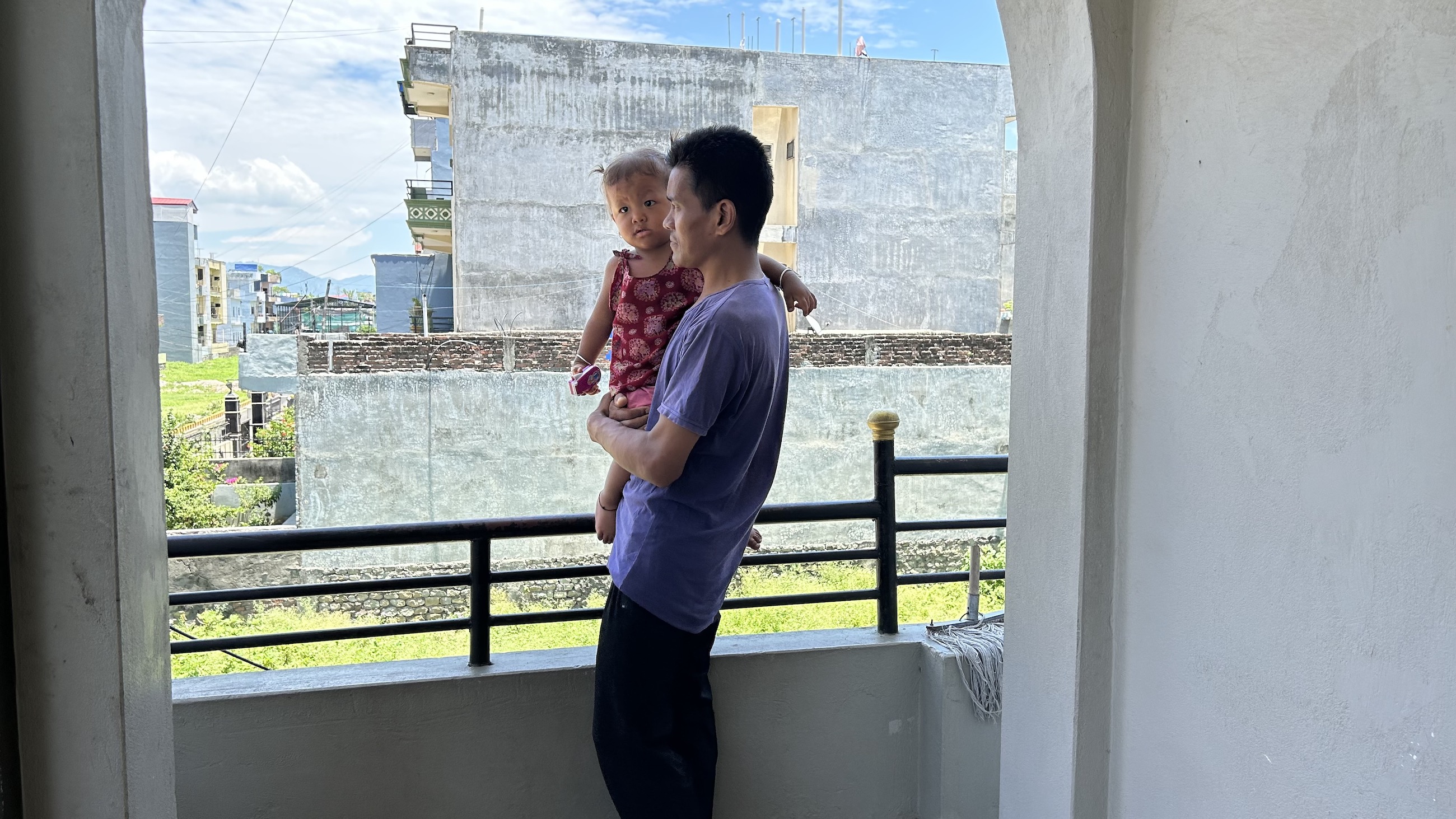It seemed a day like any other. Purna, one of thousands of South Asian men who toil in the withering heat of the United Arab Emirates was up at 5 am, ready to start his shift as an electrician.
Like most migrant workers in the UAE, Purna shared a room. Men were milling about, some returning from shifts, some, like Purna, getting ready to start their day. Purna was getting ready to dress in the half light coming in from the corridor, keeping the room lights off so as not to disturb those men still trying to sleep.
Moments after rising from bed, Puna collapsed in a heap. The sound alerted the other men, who rushed to his side. An ambulance was called, and he was rushed to a medical facility.
After regaining consciousness, doctors delivered the news that would alter the course of his life, and his family: his kidneys had failed. “When I heard that my kidney had failed, my heart dropped. Anyone would feel like that after hearing such news. I was overseas. Far from family. I had migrated to do something. I could do nothing.”
Purna, like many South Asian and African migrant workers, was in the UAE seeking better opportunities to improve his family’s life.
Migrant workers in the UAE, like the rest of the Gulf, often labor for years at a time without going home. Their homecoming is usually a much-awaited, joyous occasion when families reunite.
But not for Purna or the many workers who return suddenly with debilitating and lasting health conditions that came with no symptoms or warning. “I thought a lot about my home. I had to somehow survive. I had to come home alive.”
In addition to Purna, Human Rights Watch also spoke to two other UAE returnees, Til and Man Bahadur, who are also battling with end-stage renal diseases in Nepal.
Workers providing essential services in UAE’s extreme heat—Purna as an electrician, Til as a pipefitter, and Man Bahadur as a bike delivery driver—who after contracting diseases or getting injured quickly went from being seen by their employers as indispensable to disposable. This shameful reality is enabled by the abusive kafala (labor sponsorship) system that regulates migrant workers’ legal status in the UAE and other Gulf countries. This system gives employers disproportionate control over migrant workers’ lives and legal status, contributing to severe abuses with few ways for workers to remedy them.
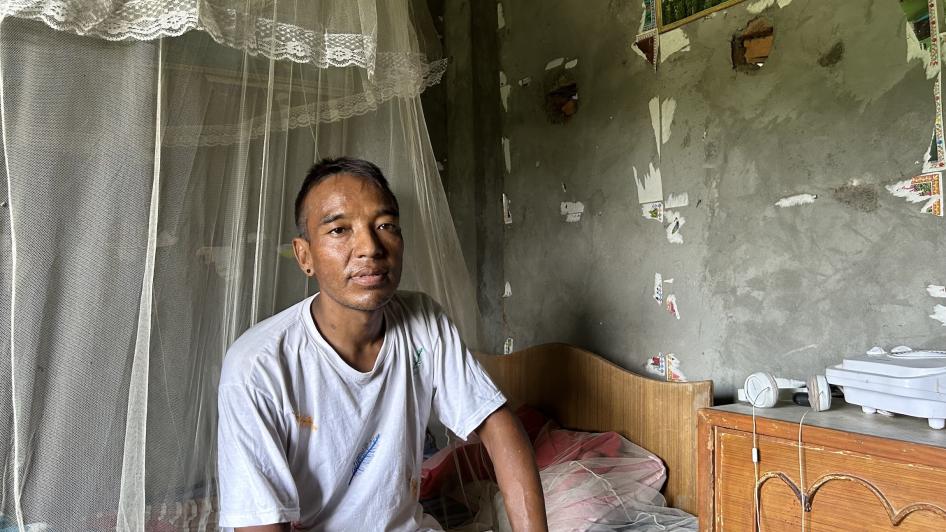
Man Bahadur at his home in Kapilvastu (L) and Til after his dialysis treatment, Butwal, Nepal (R), July 2023.
© 2023 Human Rights WatchAbuses like wage theft and exorbitant recruitment fees are rampant while protections against extreme heat are grossly inadequate.
The abrupt end of their time in the UAE marks the beginning of an arduous journey for them and their families as they battle to stay alive, with no remedy or social protection from the UAE government or their former employers.
Human Rights Watch followed their stories to better understand: what happens when they return home?
Extreme heat exposure is a serious health hazard. It can cause heat rash, cramps, heat exhaustion, or heat stroke, which can be acutely fatal or have lifelong consequences.
Al Satwa, Dubai, UAE, August 4, 2019.
Heat can exacerbate pre-existing conditions, impair cognitive function, and increase the risk of workplace injuries.
Extreme heat can also adversely impact kidney health.
Extreme heat prevents the human body's attempt to cool off, thereby dangerously stressing kidney and other organs’ critical functioning. The American Society of Nephrology issued a statement on how climate change threatens to increase the incidence and prevalence of kidney diseases, disrupt access to care, and widen inequity to kidney health. Other studies have also shown higher incidence of kidney injuries in outdoor workers exposed to hot environments, including among migrant returnees.
According to the three UAE returnees, their lives revolve around dialysis, as they rely on machines to artificially remove waste products and excess fluid to stay alive. This life-saving procedure needs to be done twice or three times a week for four hours per session. “When I don’t do dialysis on time, it gets very difficult… my body, hands, legs start swelling… it is difficult to breathe,” Purna said.
Purna and his wife had to move from his village in Nepal to the city to be closer to the hospital for easier access. “As dialysis patients, we can never tell what will happen next. We cannot predict when things will get difficult again.” Two of Purna’s weekly dialysis sessions are in the morning and one in the evening. The morning session begins at 5 AM, but Purna is up by 4 AM as he has trouble sleeping. “I fear missing my dialysis session by oversleeping, so I get up early.”
For Man Bahadur, a 4-hour dialysis session takes a minimum of five additional hours to get to and from the hospital. When he is feeling good, he goes on his own by scooter. If not, he uses the public bus with his father, which requires him to switch from a “auto-rickshaw” [three-wheeled vehicle used in Nepal], public bus, and again another auto-rickshaw. “It is difficult to go back and forth to the hospital. My parents are old… It is difficult for the elderly to wait for me overnight at the hospital. I feel bad about it. But what can we do? We don’t have a choice.”
The dialysis and this disease do not just consume the lives of the patients, but also of their caretakers.
Prior to their migration, Til and Man had occasionally experienced minor health issues like higher blood pressure, but no medical experience had come close to preparing them for the painful intensity of dialysis treatment. Seemingly mundane things like drinking water suddenly become life-threatening and require vigilance from the dialysis patients, but also their family members. “You have to minimize water intake. If you drink too much water, you have breathing problems. You get restless. You don’t know what to do with yourself… You are unable to take control of your body,” Til said.
At the waiting room, families of dialysis patients find comfort in each other’s company. Til’s wife, Chitrakala Rana, who accompanies him to the hospital says, “In some ways, I find it comforting to be at the hospital because in the waiting room, I realize I am not alone. It is not just my family that is facing this.”
When not chatting with other patients, she scrolls aimlessly through Tik Tok, springing into action when her husband needs her. “Sometimes he can eat an hour into the dialysis so I get something… sometimes the doctors ask me to get medicine… at other times, his legs cramp up and he feels dialysis, so I massage his legs.”
Chitrakala quit her work as a community health worker to care for her husband. She is the only one her husband listens to. “I need to remind him to eat his food and medicine on time, and not to drink water. He listens to me.”
The couple was forced to move their son to a government school because of the expense of private school. While she grapples with the economic fallout of her husband’s illness, Chitrakala struggles to support his recovery. “One way of keeping his morale high is by making sure he is occupied. It is difficult [for him] without work. So he helps me with some housework here and there. He helps cut vegetables and wash dishes. He also takes care of the kids.”
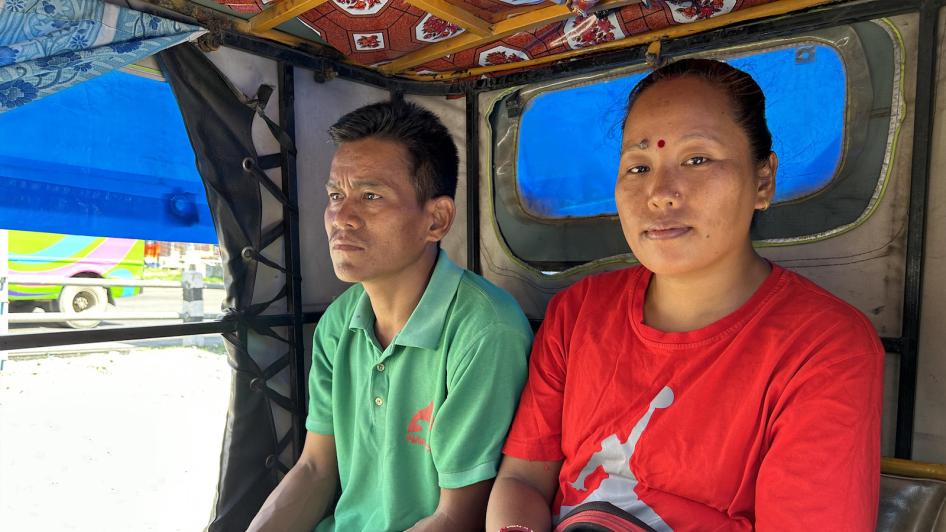
Til and his wife Chitrakala head to the hospital in an auto rickshaw, Butwal, Nepal, July 22, 2023.
© 2023 Human Rights WatchAfter a dialysis session, Til says he feels much better. “After four hours of dialysis, you feel a bit fresh. For a day, you feel fresh. You feel more hopeful about living and things will be okay.”
But as soon as one session is done, the next looms. “You feel better the next day and it is again time to do the next dialysis again. That’s how life is going. Go to hospital and return. That’s all,” said Purna.
Til’s son is now growing, but his health condition means even holding his child is a risk. “He [Til’s son] is now 12 kilograms, so I worry about my husband carrying him, as the doctor has said he should not engage in strenuous activities. But he does not listen always,” Chitrakala said.
All three patients realize the only reason they can afford dialysis and stay alive is because the Nepali government is providing free treatment.
Since 2016, the Nepali government has been providing dialysis for free along with an extra stipend for medicines. Even then, the cost of medicines, transportation, and rent add up. “If the government hadn’t offered free dialysis… (only) those with money would survive,” said Purna.
Neither the UAE government nor the employers have provided any support. When these workers’ illness meant they were no longer able to function in their jobs— as a bike delivery rider navigating the streets to bring food, as a pipefitter or electricians critical in the rapid transformation of the country, —they were discarded and left to fend for themselves.
In many cases, these diseases could have likely been prevented with adequate safety protections. The UAE prohibits employers from forcing employees to work outdoors between 12:30 and 3 p.m. from June 15 to September 15, a time of the day when temperatures even crossed 50 degrees Celsius in 2023. But extreme heat in the UAE extends significantly beyond these times. It’s clear the ban fails to adequately protect workers. A study in Kuwait, which has a similar climate, found increased risk of occupational injuries associated with extremely hot temperatures despite the ban. Another study found the highest heat intensity for workers in Saudi Arabia, where the climate is also similar to the UAE’s, was from 9 a.m. to noon, outside the UAE ban hours. Even when the UAE first implemented the policy in 2005, medical experts recognized that heat-related harms can occur before and after the summer ban hours.
Purna, who worked as an electrician, recalls the challenges of working in UAE’s heat, “From head to shoes, we were drenched with sweat… Our clothes used to be drenched. Even in that situation we had to work.”
“With sweat in your face, you cannot even see properly,” recalled Man Bahadur, who worked as a bike delivery rider. “If you wear gloves, they melt. But even then no matter the pressure, you still do it. When you take or deliver orders, you get some shaded space and AC access. You feel respite momentarily. And you rush right away once you get an order.”
All three men, hardworking providers for their families, used to work even in extreme heat, but are now unable to engage in any work at all. “Once sick, there is no work. You cannot do anything. I just get up, eat, have my medicines, rest, and have dialysis,” said Til.
The inability to provide for their struggling families takes a mental toll; their diagnosis is a cruel reminder that life is short and fragile. Without work, they dwell on concerns over their family’s uncertain future and finances.
“During free time when I am not doing dialysis, I walk around in mornings and evenings, meet friends during non-dialysis times…. If I stay home, I start getting anxious,” said Purna.
“With my family, I cannot really open up. I feel like my life is gone,” said Til. “I cannot share everything… I don’t want to add to their burden or give them more trouble.”
Even when the dialysis of migrant workers while in the UAE is covered, as temporary workers solely in the country for employment, their singular desire is to return home to be with their families. “After hearing the news (diagnosis), I felt like my life was over… I just wanted to come home as soon as possible. I wanted to die in Nepal.”
With worsening climate change, extreme heat is impacting a growing number of outdoor workers across the world. But the temperatures and conditions in the UAE and the Gulf region are even higher and more extreme than most, offering a glimpse into a potential future which could await even more workers if action is not taken to slow the crisis. Stories like that of Purna, Til, and Man will become more common and demonstrate just how lasting the impacts of inadequate heat and social protections can be.
The UAE is hosting COP28, the annual United Nations Climate Change Conference, from November 30 to December 12 this year. COP28 is a forum is for states to discuss how to confront the climate crisis that is taking a growing toll on human rights around the globe.
COP28 President Sultan Ahmed al Jaber says he is committed to put health at the center of climate discussions by announcing the inaugural Health Day .
Central to the health discussion should be occupational heat protections and remedies for health harms exacerbated or caused by extreme heat exposure.
Governments should also live up to their human rights obligations to address climate change, including by rapidly reducing greenhouse gas emissions, ensuring a just and equitable transition to renewable energy, and helping people adapt to the impact of the climate crisis.
All three of these men need financial support to help them with the medical expenses and support their families which are struggling to make ends meet without their breadwinners’ support.
“What has happened has already happened, what can we do? It would be good if I could get a kidney transplant so I could lead a normal life. But we don’t have the finances… it is just a dream. Reality, my reality is quite different.”
